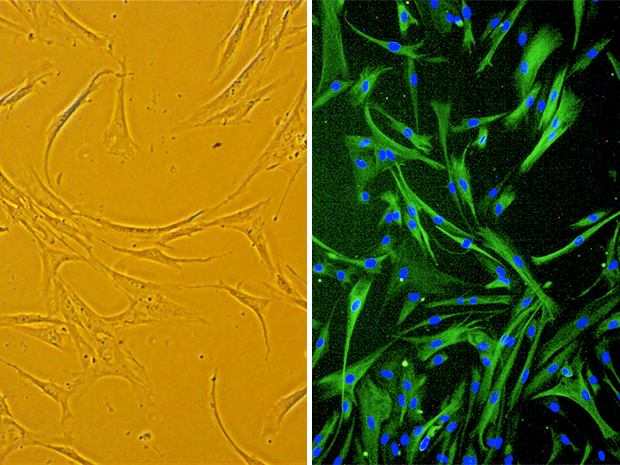STEM SIGHTS: This Concordia student is uncovering new facts on fat

Why is it more difficult for some people to lose weight?
Jessica Murphy — a Concordia PhD student and researcher in the Nutrition, Obesity and Metabolism (NOM) lab at the PERFORM Centre — thinks it may have something to do with when the onset of obesity occurs.
Murphy has been analyzing fat cells from people who have been obese since childhood, and comparing them to those of people who became obese later in life.
Her research could change not only our understanding of obesity, but how we treat it.
‘I can satisfy my inner scientist and help people improve their lifestyles’
What result are you looking for with your research at Concordia?
Jessica Murphy: This study will provide an expanded understanding of the cellular and metabolic consequences of childhood- versus adult-onset obesity, and the extent to which they can be reversed with weight loss.
The results will help identify specific defects that may be targeted in order to improve weight-loss response and decrease disease risk in specific obesity phenotypes, which are expressions of a specific trait based on genetic and environmental influences.
How do these images (top) relate to your research?
JM: The image on the left shows a microscopic view of pre-adipocytes. These are cells that can turn into fat cells. We make a culture of these cells from our participants’ fat tissue to study their capacity to proliferate, survive and develop into fat cells.
We also measure fat-cell size and assess the presence of immune cells within the tissue. Overall, our analyses give us a cellular perspective as to whether the fat may be “sick” or dysfunctional.
The image on the right shows immunofluorescence staining, a laboratory technique in which specific antibodies are chemically conjugated to fluorescent dyes. These particular cells are myoblasts, the precursor of the muscle cell, taken from skeletal muscle tissue. We study these at the mitochondrial level to assess their fat-burning capacity and efficiency.
What are some of the major challenges you face in your research?
JM: Working with primary cells from humans is a challenge because there is very little room for error. If an analysis doesn’t work or your sample gets contaminated, you can’t ask the participant to come in for another fat or muscle biopsy. You need to get it right the first time.
Sometimes we don’t get as much tissue as we’d like, but we’ve learned how best to divide a limited sample among our different analyses, and our techniques are always improving.
In which key areas could your work be applied?
JM: Our work could have implications for designing personalized obesity treatments spanning nutrition, exercise and pharmacology.
What inspired you to get involved in this field?
JM: I think my grade-four play on Harriet Hamburger’s journey through the digestive system got me hooked on nutrition and metabolism. I was Gloria Gallbladder! As an undergraduate nutrition student, I could not ignore the obesity epidemic. My interest narrowed to wanting to understand the intricacies of obesity and its related diseases.
Obesity research allows me to satisfy my inner scientist and help people improve their lifestyles.
How can interested students get involved in this line of research?
JM: Having a background in any health or biological science would be a good start. You can also contact Sylvia Santosa, associate professor in the Department of Exercise Science and the principal investigator of the NOM lab, if you’d like to get involved with similar studies.
What do you like best about being at Concordia?
JM: Conducting my research at the PERFORM Centre, of course! I feel privileged to have access to state-of-the-art lab facilities and the necessary personnel and equipment to successfully execute a weight-loss study, all under one roof.
Find out more about Concordia’s PERFORM Centre.


